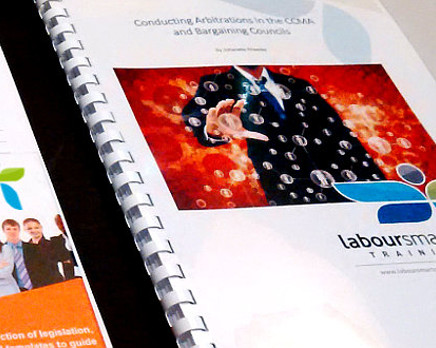- Course Name
- C15 - Organisational rights & Collective bargaining
- Course Description
- This practical training provides the delegates with a complete insight into the legal requirements of the LRA with regard to collective labour law and labour relations. The course provides a unique insight into managing and building the relationship between employee, union and the employer. The ideal delegate would be managers, shop stewards, union officials, office bearers and IR managers.
- Duration
- 1 day
- Cost
- R2 950.00
Module 1 : Introduction
- Progression of rights - an overview of South Africa
- The Constitution and freedom of association
- Job seekers and freedom of association
Module 2 : Freedom of association
- The protection in terms of labour law
Module 3 : Defining a Trade Union
- Purpose of a Trade Union
- Role players in a Trade Union
Module 4 : Representativeness
- The rights of Trade Unions
- How do you know the employees are unionised?
- Can I prevent employees to join?
- Defining representativeness
- Principle of majoritarianism v plurality
Module 5 : Modules of the LRA
- Module 12 - Access to the workplace
- Module 13 - Deduction of levies
- Module 14 - Time off for office bearers
- Module 15 - Shop stewards
- Module 16 - Disclosure of information
Module 6 : The majority Trade Union
- Shop stewards
- How many may the Union have?
- Full time shop stewards
- Time off for shop stewards and office bearers
- Misconduct of shop stewards
- The role and function of shop stewards
- How to deal with the difficult shop steward
Module 7 : Organisational rights & recognitions
- Right to establish a threshold
- Collective bargaining and collective agreements
- Consultation and negotiation
- Destructive collective behaviour
- Collective agreements and recognition agreements
- The duty to bargain - does it exist?
- Disputes
Module 8 : How to prepare for Union meetings
- The process of entering the workplace from recruitment to majority Union
- Preparation and strategy for meetings
- The negotiation process
Module 9 : Conflict resolution
- Main sources of conflict
- Assumptions and perceptions
- Positive and negative characteristics of conflict
- The impact of negative conflict on the relationship with the Union
- Techniques on identifying and managing conflict
- Do’s and don’ts of conflict management
- Mediation processes
- Building and maintaining relationships
- The attributes of a good conflict manager
Module 10 : Examples & Exercises
- Examples and Exercises
2025 © LabourSmart Training (Pty) Ltd. All Rights Reserved. | Developed and Hosted by Resolve Technology Solutions (Pty) Ltd | SEO by NextG



